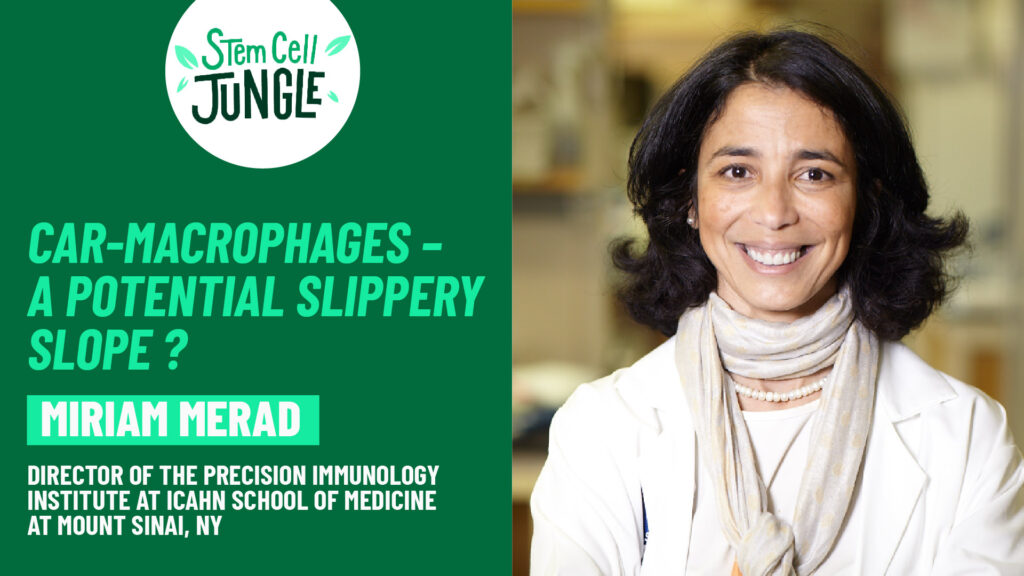Miriam Merad, MD, PhD, Oncologist and Director of the Precision Immunology Institute at Mount Sinai in New-York is an expert of tissue-resident immune cells in cancer. With the rise of therapeutic initiatives based on CAR-macrophages, we asked her about this emerging field and the specific challenges of CAR-macrophages.
Transcript:
Now CAR-macrophages. This is an interesting question, and I have to be careful because there’s a lot of private companies that are building this, I cannot be too negative or too positive. But, I am still very cautious about this technology. Because, in contrast to T cells and NK cells, which know how to expand in a faithful manner – when T cells expand, they expand clonally, so you can totally anticipate the type of T cells that are going to be generated, the progeny of this clone. They look identical, it’s a clone. Macrophages – first macrophages don’t expand well, not at all.
They expand in fact very little, it’s very difficult to have a large expansion. And there is a reason for that right. Because it’s too dangerous to have this big expansion. And also, macrophages are innate cells. So they respond to cues. And it’s a very unpredictable, they don’t expand clonally. It’s very difficult to really predict how they expand. So I am more cautious, I’m following this field, it’s not a field, it’s a process carefully, and I will be interested to know how this develops.


